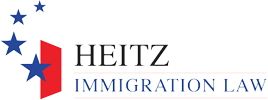Employment verification is an essential process that employers in the United States must undertake to verify the identity and employment authorization of their employees. By following the guidelines set by the U.S. Citizenship and Immigration Services (USCIS), employers can ensure compliance and maintain a reliable workforce. In this blog post, we will explore the key aspects of employment verification, including the use of Form I-9, the role of E-Verify, and recent changes related to the COVID-19 pandemic.
The Form I-9 is a crucial tool in the employment verification process. It requires employees to provide their personal information and confirm their employment authorization. Employers are responsible for reviewing and recording the information on the form and retaining it for a specific period. The Form I-9 serves as a vital record to verify an individual’s eligibility to work in the United States.
Steps in the Employment Verification Process:
- Part 1 Completion: Employees must complete Part 1 of Form I-9 after being hired.
- Document Submission: Within three days of hire, employees need to provide original documents that establish their identity and authorization to work.
- Document Review: Employers carefully review the provided documents to ensure their authenticity and record the necessary information on Form I-9.
- Record Keeping: Employers must retain the Form I-9 for each employee and keep it on file for a specific period, ensuring the integrity of their employment records.
Enhancing Verification with E-Verify: Confidence in Legitimate Documents
Some employers choose to use the E-Verify system voluntarily. E-Verify is an electronic verification program provided by the Department of Homeland Security (DHS). It enables employers to electronically confirm the information provided by employees on the Form I-9 with government databases, ensuring the legitimacy of their employment documents. While the use of E-Verify is generally optional, specific state or federal contracting requirements may mandate its use. Recently, effective July 1, 2023, changes in the State of Florida because of bill SB1718 will result in any employer with 25 or more employees having to use the E-Verify system.
Pandemic Policies Are Ending: Reverting to In-Person Inspections
During the COVID-19 pandemic, the DHS implemented temporary flexibilities for employment verification. However, these policies are coming to an end, and employers must adapt to the reinstated requirements. Starting July 31, 2023, remote document inspections will no longer be permitted. Employers must physically inspect employee documents that were previously verified remotely by August 30, 2023.
Understanding the Pandemic-Era Requirements
During the pandemic, employers with remote employees could follow an inspection deferral policy. New employees could complete Section 1 of the Form I-9 on their first day, while employers had flexibility in inspecting identity and authorization documents through remote means. As the pandemic policies approach their end, employers must ensure compliance by conducting in-person document inspections.
What Should Employers Do Now?
To maintain compliance and uphold workforce integrity, employers should take immediate action. First, they should prioritize completing the physical examination of employee documents before the August 30, 2023 deadline. Additionally, conducting an internal audit of Form I-9s, preferably with legal counsel, can help identify any discrepancies or areas that require attention. Employers should also review and strengthen their employment verification procedures, especially if they relied on remote verification policies during the pandemic. This proactive approach will enable employers to make informed decisions about any future remote verification systems introduced by the DHS.
Employment verification is a vital process for U.S. employers to comply with immigration laws and maintain a lawful workforce. By understanding the Form I-9 process, leveraging tools like E-Verify, and adapting to changing requirements, employers can effectively verify the identity and employment authorization of their employees, ensuring a robust and compliant workforce.









